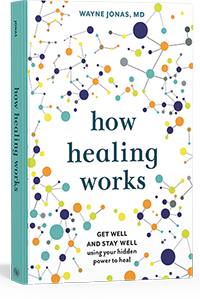Only about 15 to 20 percent of health-related outcomes are attributable to medical interventions. The rest are related to health behaviors such as diet, physical activity, and smoking status, with the physical, social, and economic environment affecting a person’s ability to make healthy choices and accessing medical care.
The social, behavioral, environmental, and spiritual components are the 4 dimensions of healing and are required for managing complex, chronic diseases.
Mind and Spirit
This dimension addresses the person’s goals for healing—their desires, beliefs, and needs. The following questions help people reveal what they find meaningful, what motivates them, and what provides them with a sense of well-being. In other words: “What matters?” versus “What’s the matter?”
- Why do you seek healing? What do you want to happen through healthcare?
- What are your plans and aspirations in life? What is your purpose? What do you find to be your most meaningful daily activities?
Social and Emotional
Social support is salutogenic or healing. Healing and disease are intertwined with personal relationships and social support networks, including family, friends, and colleagues. With these questions, a person can help capture the interpersonal components of their daily life.
- How is your social support? What are your social connections and relationships?
- Do you have family and friends with whom you can discuss your life events and feelings? Could you comfortably call up someone tomorrow if you needed their help? Are there people you have fun with? How often?
- Tell me about your family and friends? Do you have someone you talk to in confidence and trust?
 Behavior and Lifestyle
Behavior and Lifestyle
Behavior and lifestyle can impact up to 70 percent of chronic illnesses; therefore, healthy behaviors are essential for creating health. But behavior change must be connected to what is meaningful for the person or it cannot be sustained. These questions provide a snapshot of a person’s lifestyle which, when coupled with motivation, provides a path forward for change.
- What do you do for stress management? How do you relax, reflect, and recreate?
- Do you smoke or drink alcohol or take drugs? If so, how much?
- How’s your diet? (Describe your last breakfast, lunch, and dinner)
- Do you exercise? If yes, what types and amounts?
- How is your sleep (quality and hours)? Do you wake refreshed?
- How much water, sugary drinks, and tea or coffee do you drink?
- Do you use complementary and alternative medicine? Do you take supplements?
Environment
The safety and security of one’s physical environment plays a greater role in health than many of us are aware. For instance, an unsafe neighborhood could prevent someone from going on walks. A noisy apartment building along a busy road can aggravate asthma and other pulmonary conditions, as well as produce stress and lack of sleep.
- What is your home and work environment like?
- Is there a place at home where you can go and feel joyful and relaxed?
- What is your exposure to light, noise, clutter, music, colors, and art?
- How much contact with nature do you have?
- What is your exposure to toxins, especially heavy metals or endocrine disrupting chemicals?
Originally published on Quora
 Take Your Health Into Your Own Hands
Take Your Health Into Your Own Hands
Drawing on 40 years of research and patient care, Dr. Wayne Jonas explains how 80 percent of healing occurs organically and how to activate the healing process.

